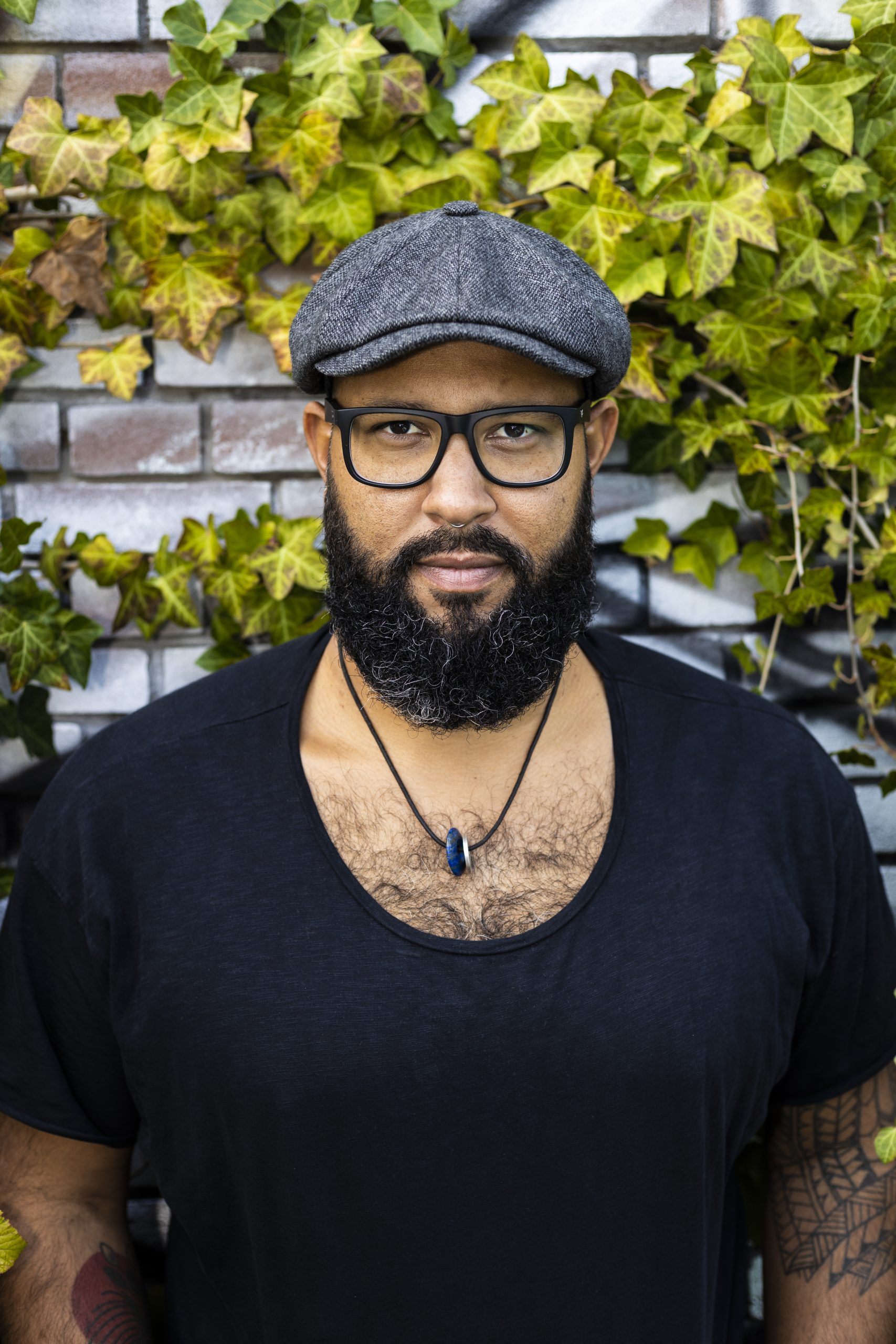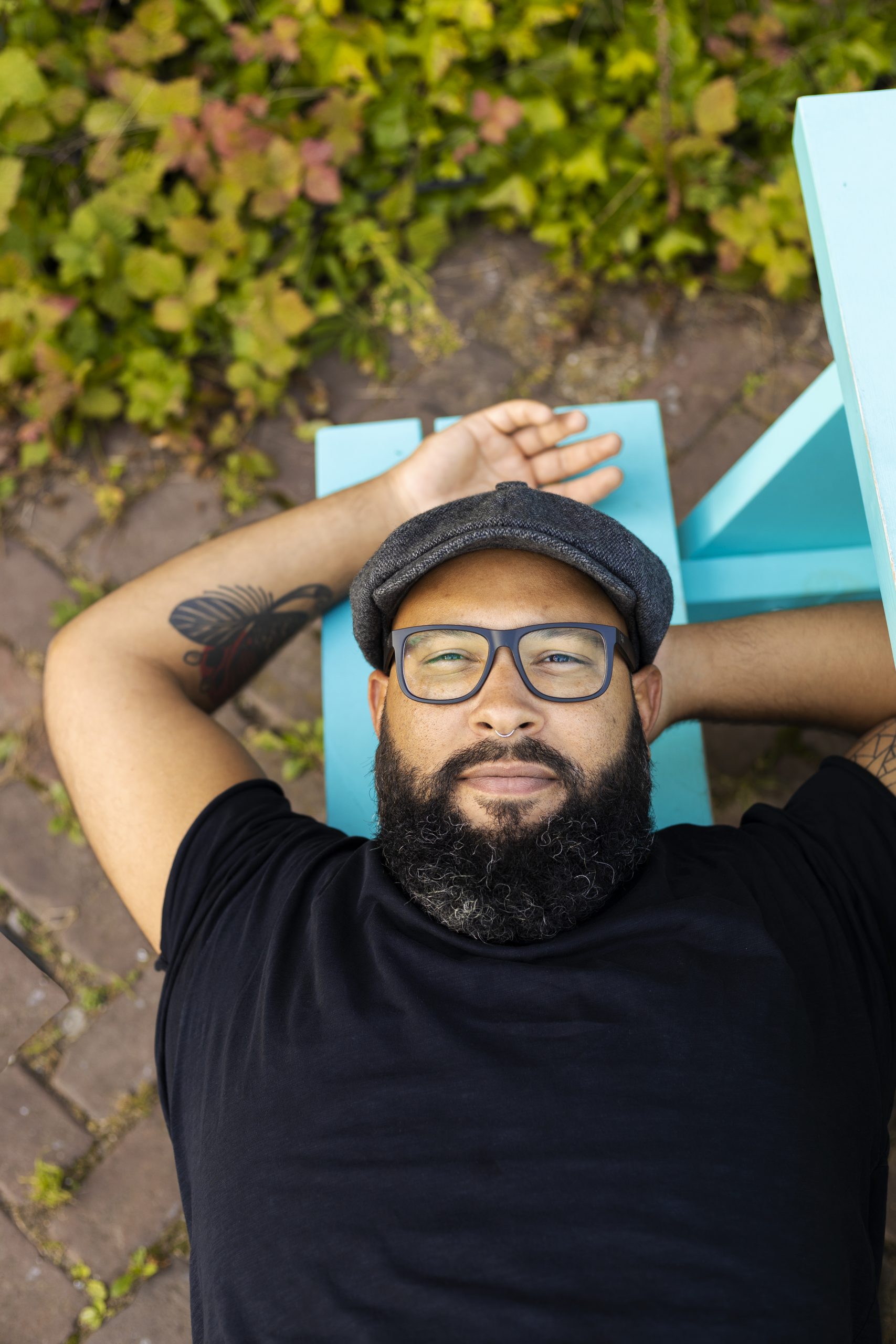‘Because my knowledge of Papiamentu, the local language, was poor, I did not say much at school. When I did, my classmates would call me pastor – a word that refers to the Dutch missionaries that came with the colonisers. I felt ashamed and it contributed to my feelings of displacement. I wondered: Am I Curaçaoan or Dutch? Black or white? Both or neither?
I never got bullied, but I was a quiet kid. During lunch hour, I would sit in the shade and read a book or hang out with the girls, instead of playing ball with the other boys. I thought they were macho and loud. I was terrible at physical exercise and thought the whole idea of competing with each other was ridiculous.

Image: Elvin Boer
When I was sixteen, a new kid entered our classroom: Immanuel. He was everything I was not. He had a beautiful Latino smile and an amazing body. With his huge arms, often in tight T-shirts, he would play the violin. What attracted me to him the most was the fact that he was quiet yet strong. He did not need to brag. His presence caused a warm and pleasant feeling in my stomach.
Soon enough, shame took over. I denied my feelings and tried to cope by eating a lot. As a result, I got so fat that I was too ashamed to look at myself in the mirror. I became more and more reluctant to show myself and my needs to the world. Immanuel and I never said a word to each other.
‘Big men and especially big men of colour are often seen as a threat. Both physically and sexually’
I graduated from high school and returned to the Netherlands. I went to university. It was initially good to be back and reconnect with things from my childhood. But after 9/11, I sensed an increase in racism in Dutch society. Because of the colour of my skin, people would take me for a Muslim. So, to counter this, I would always make sure to be friendly with people, to show them I was “a good guy” – a Dutchman who is decent and well educated. I tried to live up to an image that refutes every prejudice about foreigners: I became an eloquent straight A-student and an upright taxpayer who owns a house and has no debts.

Image: Elvin Boer
Big men, and especially big men of colour, are often seen as a threat, physically and sexually. To be accepted, I played up my gayness and acted more feminine than I really was. Straight women loved it, as well as straight men, to whom I was no longer a threat. I was a girl’s gay best friend – a clown, good for jokes and harmless fun. Above all: I was a sexless figure. I did not have any gay friends and could not imagine that anyone would find me attractive. At twenty-three, I was still a virgin.
I fell into a depression. After years of people pleasing and trying to prove that I belonged, I was exhausted. I went to therapy. I learned that all this time, I had been trying to do an impossible job. My problem was not whether people would accept me; it was my own toxic belief that my feelings of displacement and exclusion were the result of my own inferiority.
‘They taught me how to feel gorgeous. Without having to meet conventional beauty standards and regardless of what others might think of me’
Little by little, I changed. I met a man who loved me. Even if I did not fully believe him at first, I felt valued. This was a new feeling. Fulfilling. Eventually, the passion evaporated. I blamed my appearance for the break-up, but I also stopped pretending to be something I am not. I stopped silencing my desires.

Image: Elvin Boer
In a club I met a man who was big and manly and whose beard made the skin on my face feel raw and rugged after hours of making out. It felt incredibly erotic and manly. Soon after, I started growing my own beard. It looked good and other men complimented me. For the first time in my life, I felt an urge to express my masculinity and bond with other men.
I joined a gay rugby team in Amsterdam. Its members come in many colours and nationalities, and all different shapes and sizes. Becoming part of this club felt like a homecoming. For a long time, my chubby, hairy body had made me feel unattractive and prevented me from engaging with other men. My teammates taught me how to feel gorgeous, without having to meet conventional beauty standards, and regardless of what others might think of you.
‘I love grooming my beard. Not for others, but for myself’
My beard means a lot to me. It is not a fashion statement – it is truly an expression of who I am. I love grooming it with my beautiful afro-comb and making sure I look presentable. Not for others, but for myself. Over the years, I have learned to value the person I am and feel at home in my body.
I love my friends and my life. But at the same time, I realise I will never fully belong here, just as I do not fully belong on Curaçao. I know my being accepted in Dutch society is conditional and it can be taken away from me at any moment. I won’t let this happen. I speak six languages; I have a passport and plenty of savings. I am strong. If shit hits the fan, I will be out of here.’
